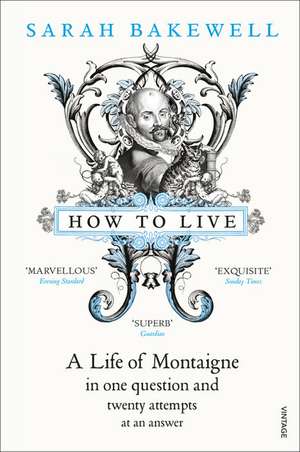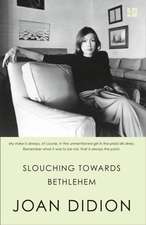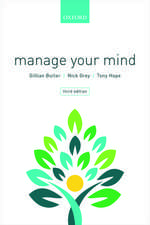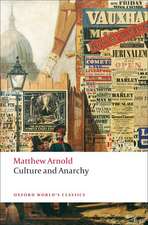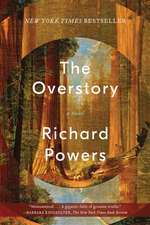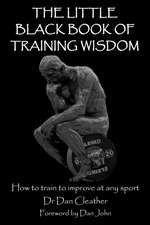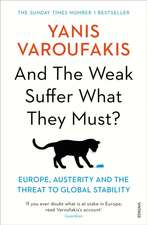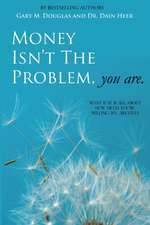How to Live
Autor Sarah Bakewellen Limba Engleză Paperback – 6 ian 2011
How to get on well with people, how to deal with violence, how to adjust to losing someone you love? How to live? This question obsessed Renaissance nobleman Michel Eyquem de Montaigne (1533-92), who wrote free-roaming explorations of his thought and experience, unlike anything written before. Into these essays he put whatever was in his head: his tastes in wine and food, his childhood memories, the way his dog's ears twitched when it was dreaming, events in the appalling civil wars raging around him. The Essays was an instant bestseller, and over four hundred years later, readers still come to him in search of companionship, wisdom and entertainment - and in search of themselves.
This first full biography of Montaigne in English for nearly fifty years relates the story of his life by way of the questions he posed and the answers he explored.
| Toate formatele și edițiile | Preț | Express |
|---|---|---|
| Paperback (2) | 70.90 lei 26-32 zile | +27.81 lei 10-14 zile |
| Vintage Publishing – 6 ian 2011 | 70.90 lei 26-32 zile | +27.81 lei 10-14 zile |
| Other Press (NY) – 31 aug 2011 | 118.52 lei 3-5 săpt. |
Preț: 70.90 lei
Preț vechi: 83.51 lei
-15% Nou
13.57€ • 14.20$ • 11.23£
Carte disponibilă
Livrare economică 20-26 martie
Livrare express 04-08 martie pentru 37.80 lei
Specificații
ISBN-10: 009948515X
Pagini: 400
Ilustrații: 12
Dimensiuni: 128 x 195 x 32 mm
Greutate: 0.37 kg
Editura: Vintage Publishing
Locul publicării:United Kingdom
Notă biografică
Extras
The connection is not a simple one: he did not sit up in bed and immediately start writing about the accident. He began the Essays a couple of years later, around 1572, and, even then, he wrote other chapters before coming to the one about losing consciousness. When he did turn to it, however, the experience made him try a new kind of writing, barely attempted by other writers: that of re-creating a sequence of sensations as they felt from the inside, following them from instant to instant.
Recenzii
“Serious, engaging, and so infectiously in love with its subject that I found myself racing to finish so I could start rereading the Essays themselves…It is hard to imagine a better introduction—or reintroduction—to Montaigne than Bakewell’s book.” —Lorin Stein, Harper’s Magazine
“Ms. Bakewell’s new book, How to Live, is a biography, but in the form of a delightful conversation across the centuries.” —The New York Times
“So artful is Bakewell’s account of [Montaigne] that even skeptical readers may well come to share her admiration.” —The New York Times Book Review
“Extraordinary…a miracle of complex, revelatory organization, for as Bakewell moves along she provides a brilliant demonstration of the alchemy of historical viewpoint.” —Boston Globe
“Well, How to Live is a superb book, original, engaging, thorough, ambitious, and wise.” —Nick Hornby, in the November/December 2010 issue of The Believer
“In How to Live, an affectionate introduction to the author, Bakewell argues that, far from being a dusty old philosopher, Montaigne has never been more relevant—a 16th-century blogger, as she would have it—and so must be read, quite simply, ‘in order to live’…Bakewell is a wry and intelligent guide.” —The Daily Beast
“Witty, unorthodox…How to Live is a history of ideas told entirely on the ground, never divorced from the people thinking them. It hews close to Montaigne’s own preoccupations, especially his playful uncertainty ߝ Bakewell is a stickler for what we can’t know. …How to Live is a delight…” —The Plain Dealer
“This book will have new readers excited to be acquainted to Montaigne’s life and ideas, and may even stir their curiosity to read more about the ancient Greek philosophers who influenced his writing. How to Live is a great companion to Montaigne’s essays, and even a great stand-alone.” —San Francisco Book Review
“A bright, genial, and generous introduction to the master’s methods.” —Kirkus Reviews
“[Bakewell reveals] one of literature's enduring figures as an idiosyncratic, humane, and surprisingly modern force.” —Publisher’s Weekly (starred)
“As described by Sarah Bakewell in her suavely enlightening How to Live, or A Life of Montaigne in One Question and Twenty Attempts at an Answer Montaigne is, with Walt Whitman, among the most congenial of literary giants, inclined to shrug over the inevitability of human failings and the last man to accuse anyone of self-absorption. His great subject, after all, was himself.” —Laura Miller, Salon.com
“Lively and fascinating . . . How To Live takes its place as the most enjoyable introduction to Montaigne in the English language.” —The Times Literary Supplement
“Splendidly conceived and exquisitely written . . . enormously absorbing.” —Sunday Times
“How to Live will delight and illuminate.” —The Independent
“It is ultimately [Montaigne’s] life-loving vivacity that Bakewell succeeds in communicating to her readers.” —The Observer
“This subtle and surprising book manages the trick of conversing in a frank and friendly manner with its centuries-old literary giant, as with a contemporary, while helpfully placing Montaigne in a historical context. The affection of the author for her subject is palpable and infectious.” —Phillip Lopate, author of The Art of the Personal Essay
“An intellectually lively treatment of a Renaissance giant and his world.” —Saturday Telegraph
“Like recent books on Proust, Joyce, and Austen, How to Live skillfully plucks a life-guide from the incessant flux of Montaigne’s prose . . . A superb, spirited introduction to the master.” —The Guardian
“[How to Live] is written in the form of a delightful conversation across the ages with one of the most appealing, likeable writers who ever lived.” —Independent Mail
"More than just a straightforward biography of Michel de Montaigne, Sarah Bakewell cleverly breaks away from chronology to explore the fundamental questions of living through the philosophy, beliefs, essays and experiences of the French master we often reference as the “father” of “essay.”—Cerise Press
